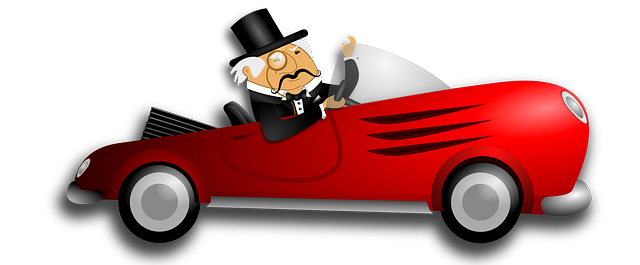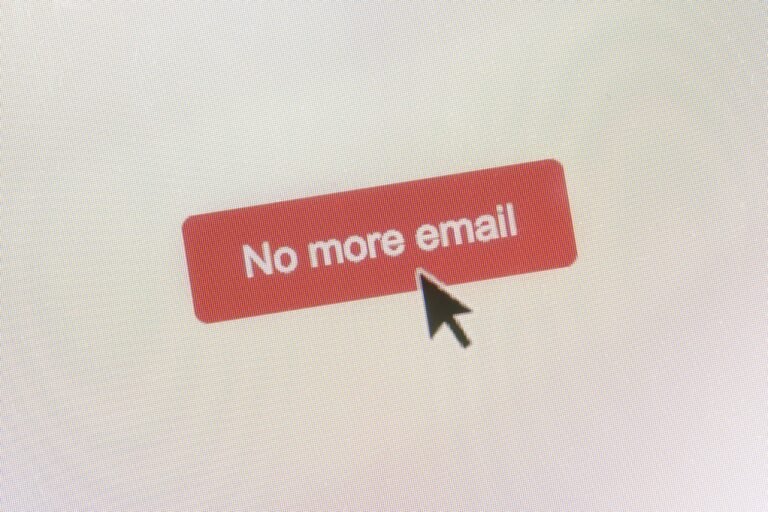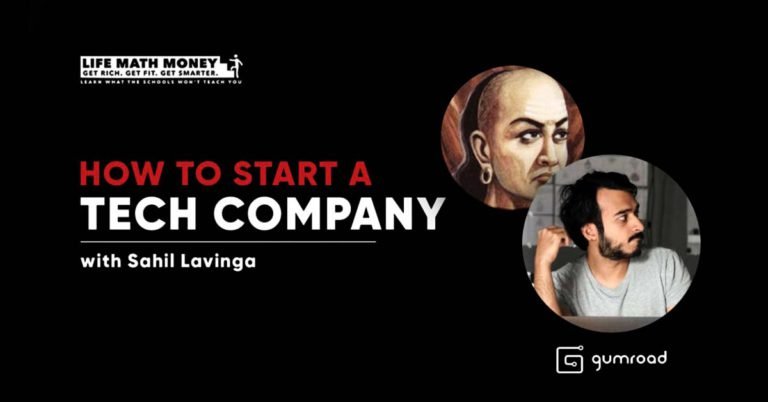From the desk of Harsh Strongman
Subj: How to Choose The Right Business to Start (The Right Business Model)
You Can’t Turn Chicken Shit to Chicken Salad
One of the biggest mistake many entrepreneurs make is starting out in a bad industry/business and then spending years trying to turn it into a good business.
What do I mean when I say chicken shit businesses?
I mean businesses that can’t scale, can’t be automated or delegated, have extremely low margins, high regulations, have too much competition, too niche to ever be big, and “businesses” that are psuedo-jobs.
There are many businesses which are inherently just poor businesses, but for one reason or another, seem to attract many new people each year.
Let’s discuss some examples:
Bad Business Example: Restaurants
A lot of wannabe entrepreneurs start restaurants. It seems like a decent idea in theory, but most restaurants fail in the first year.
Around 60% of new restaurants fail within the first year of operation, and 80% fail within the first 5 years.
Why are restaurants a bad business?
1. Cutthroat Competition
The restaurant industry is extremely competitive. Every street in the city has a bunch of restaurants. Online apps list them all, and at any given moment, a potential customer can choose from dozens of them.
You may think your food is special and that your grandma’s recipe is better than your competition’s grandma’s recipe, but that is just a made up distinction in your head.
The fact of the matter is that all restaurants across all cuisines are directly competing with each other.
There is a fixed maximum market size (number of people in the local area * how many meals they’re willing to eat outside) and all restaurants are competing for a slice of the pie.
2. Physical Business Restricted to One Location
Restaurants come with all the problems associated with being a physical business – they suffer the most from pandemic related lockdowns, high costs like rent, limited working hours (you do not make money as you sleep), reach limited to one small area, etc.
I cover them in detail in this Business 101 article.
3. Requires Too Much Management and Can’t Be Automated
Restaurants have way too many moving parts like buying all the different ingredients every day, making sure everything is fresh, preparing the kitchen anticipating the demand of the day, making sure all the staff shows up on time, the tables and the place is clean, etc.
The scope for automation is low and you as a business owner need to be involved full time to manage the business. This is really bad because you didn’t get the most important thing you were seeking – freedom!
You just created another job for yourself – and a much more stressful one at that.
4. Low Margins
To top it off, for all the hard work you do, you don’t make that much money.
All the competition means that prices are low, and high costs like salaries and rent ensure that you’re operating on thin margins.
This is especially true for food delivery because your customers have 1000 different options to choose from and they are price sensitive.
In fact, for many restaurants, food isn’t even profitable. They rely on selling people drinks to break even.
5. High Government Interference/Regulation
If you’re in a western country, you also have to deal with government inspectors for fire compliance, hygiene compliance, etc.
This is not always a bad thing for society, but it does make business harder and more expensive.
Let’s discuss another common example of a bad business:
Bad Business Example: Professionals Services Like Doctors, Lawyers, Accountants, Realtors, etc.
These are businesses that revolve around some skill or talent of the entrepreneur that is being sold to individual clients.
Why are Professional Services a bad business?
1. Unscalable (Income Glass Ceiling)
While these businesses are easier to start and manage, they have a glass ceiling. They can never make you rich, only well-off.
This is because the business is unscalable.
How many patients can the doctor treat at once?
How many cases can a lawyer handle at once?
How many teeth can a dentist repair at one time?
Not that many.
This leads to an upper limit on sales and profits, which is never a good thing.
2. Can’t Be Sold, Transferred, or Passed on to Your Children
When people hire your firm for your professional services, they are not hiring “your firm”, they are hiring YOU.
This is not really a business, but self-employment.
Look, if your surgeon came up to you a day before your surgery and told you that he’s sold his practice to another surgeon, would you go ahead with the surgery?
You wouldn’t. Because you weren’t hiring BrandName Medical Services Inc.. You were hiring Dr. FirstName LastName.
It is literally next to impossible to sell or transfer this type of business.
Remember, if your children can’t inherit it – it’s a job, not a business.
3. Time For Money Exchange
These businesses involve exchanging time for money in one way or another. They lack what you are seeking in a business – freedom.
You want to disassociate time and income. This is the only way to live a great life.
Being a self-employed professional cannot accomplish this.
What Does a Good Business Model Look Like?
Note: Before I get into this list, I want to point out that no business will meet all points. These are just things to consider and ponder over before you dedicate many years to a business idea. Just because a business does not hit everything on the list does not necessarily mean it’s a bad business.
1. Low or No Competition (Or Niche Down Till You Get There)
A very good book on the importance of avoiding industries with high competition is Zero to One by Peter Thiel (India, USA).
If you want more book recommendations from me, go here.
Basically, competition kills profits. All the most profitable businesses in the world are monopolies.
Google = Search engine monopoly.
Amazon = Online physical product distribution monopoly.
Standard Oil (history’s richest company) = Was a monopoly.
Avoid entering industries with cutthroat competition (usually very easy to spot by the low margins) – examples are web hosting providers, cheap FMCG products, restaurants, etc.
If you enter a high competition industry, make sure you pick a niche with high interest that isn’t well served by the market.
For example, starting a general cooking blog or channel on YouTube is high very competition. Your chances of success are very low.
A more niche resource dedicated to high protein Indian food will do quite well. Your chances of success are high.
This is because there is high demand and there are few existing resources providing quality information for this particular segment.
2. Online Business and No Physical Products
I will not bore you by repeating the same things over and over again – check this article for why online businesses are better than physical businesses.
As far as possible, you also want to avoid having to deal with physical products.
You have to get them from a manufacturer, ensure they’re of good quality, ship them, handle returns, deal with customers claiming that the product was never delivered – it’s a complex thing to have to do, and frankly, an annoying thing to have to do on the regular.
The best businesses are SaaS (software as a service) or digital products/services because they have the least hassle and the highest margins.
3. Recurring Revenue
You want to go for businesses that produce recurring revenue from customers, not just one time sales.
The problem with one time sales is that you have to focus too much on marketing to attract new people, and once you put in all the effort to get a customer… they pay you once and the process starts again.
SaaS products are really good at this. Instead of charging you $100 upfront to sell you the software, they’ll charge you $10 a month.
This gives them stable revenues and pays for long term R&D.
It’s much harder to get rich doing one time sales than it is to do so with recurring subscriptions.
This is the one thing that is bad about blogging and content creation – most of your products are one time sales.
You will not buy the same ebook from me twice. On the other hand, if I was selling SaaS software, you’d be happy to pay me each month.
If you want to do content creation, keep this in mind and work on some recurring revenue products (like memberships).
4. Doesn’t Require Too Many Employees
The more employees you have, the bigger the hassle your business becomes.
Employees are generally not self-motivating i.e. you will have to keep pushing them to work harder and you will have to constantly monitor and review their work to ensure good quality.
A business that has a ton of employees was a good thing back in the industrial age and was necessary for scale, but now in the age of software, that’s not the case.
Software is cheaper, more accurate (fewer errors), and doesn’t need to be managed.
5. Good Margins
This is very important. You do not want to start a business that has paper thin margins.
Bad margins make it really hard for you to take risks or do any R&D, i.e. you will stagnate.
It also forces you to do unethical things to stay afloat, which is not a good thing.
You only want to get into businesses that offer good margins/profits for you because you’re taking on risk and putting in the work and deserve to get paid.
6. Low Regulation Industry
You want to be in an industry that has low regulations so you have business flexibility.
Don’t do things like starting a bank or NBFC and things of the sort that make you answerable to the government over everything.
Avoid having to deal with bureaucrats as much as possible – they only cause problems.
Remember, the government will rarely do anything that will help you, but will often move fast when it comes to preventing you from doing something.
Highly regulated industries are just not great for entrepreneurs and innovators, they’re good for the incumbents.
7. Scalability
Of everything on the list, this one is perhaps the most important and is absolutely non-negotiable.
Any business that cannot be scaled is absolute garbage and should not be done. You cannot become rich without scale.
Doctor’s practice? Not scalable.
Selling paintings? Not scalable.
Selling 1-on-1 consultations? Not scalable.
If you don’t see a clear way how your business can scale, don’t waste your time on it.
Non scalable businesses are the absolute worst businesses on the planet because they make enough money for you to live a good life, but they have no scope of doing anything beyond that.
Unscalable businesses can never make you real money.
They will you cost years of your life and will not lead you where you want to go.
Focus on scalability.
If you take anything away from this article, let it be this: scale, scale, scale.
Amazon? An infinite number of people can buy from them at the same time – scalable.
Google? An infinite number of people can use their search engine at the same time – scalable.
Life Math Money? An infinite number of people can read LMM articles at the same time – scalable.
Apple? Barring supply issues, they can sell products to everyone who wants to buy – scalable.
8. A Large Enough Market
This is also non-negotiable and closely ties in with scalability. There needs to be a large enough market for your product.
If you want to get anywhere, don’t market to ultra-small niches like a product teaching Swahili to Hebrew speakers. It’s just too small to be worth much.
On the other hand, teaching Spanish or Chinese to English speakers will be far more profitable and worthy of the time.
Make sure your product isn’t so niche that you only have 10 people in the world interested in it.
Keep the addressable market big enough to matter.
That’s all for this piece. With this you should have a pretty good model on how to evaluate a business idea before you commit a lot of time and money to it.
Keep in mind that everything here is a guideline – if you spot killer opportunities that don’t check everything here, take them anyway!
With love,
Harsh Strongman
P.S. If you’re interested in starting a Twitter based online business from scratch, check out The Art of Twitter.











